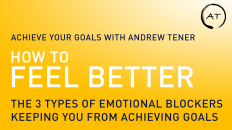Growing up, I was often told about the Golden Rule: treat others the way you would want to be treated. But unlike some of the other cliché advice I received in preschool, I would say the Golden Rule is either completely useless or, if actually followed, destructive for the person following it. (As an aside, the best advice I got from preschool was “be yourself.” It literally took me close to 25 years to realize how brilliant that concept was.)
Now, I would never leave my readers with a problem and no solution, so I’m going to replace the Golden Rule with my Platinum Rule.
My Platinum Rule is: Don’t treat others the way you wouldn’t want to be treated. I’ll explain why this rule is infinitely more applicable in a minute, but first I want to tell you why the Golden Rule is both impractical and harmful.
The Golden Rule does not give reasonable advice.
Unfortunately, the Golden Rule isn’t giving us any useful guidance on how to behave. All you need to do to figure that out is simply to ask yourself, “How do I want to be treated?”
My answer, for the record, is “As well as possible.” And I think many people in America would accept the following proposition: would you want every person in the U.S. to give you $1?
Honestly, I would really like to be given a dollar by everyone (who has the luxury to spare it) in the U.S. At that point, I could transition this website into something even more awesome. I could really reach people and help out in new ways. I would have hundreds of millions of dollars, even after I pay my taxes. This is how I’d like to be treated. But take that further, and ask for $2. Most people would like that too. So the way I would like to be treated is really, really cozy. Not only that, but it’s a far cry from the treatment I expect or ask from other people.
Everyone wants to be put first in some respect in their life, whether they desire free money or to be given preferential treatment in their job search. We desire people to treat us unfairly well, more or less as well as possible. Therefore, the Golden Rule is telling us to treat other people preferentially to ourselves. And ultimately, because we would want to be treated in the best way possible instead of merely in a good way, the Golden Rule hints that we should give ourselves completely to each other. Drop your work, drop your interests, just give to everyone else.
I’m not against altruism by any means. The reason the giving advice of the Golden Rule is bad is because it’s actually destructive to the person who follows it.
A follower of the Golden Rule will create unhappiness in the world.
Giving everything you have to others is only a good thing if you do it willingly. I really want to stress the importance of giving freely. If you do not feel happy overall about helping someone, then your gift to them will build resentment. Resentment builds a mindset of scarcity and distrust. Any unhappiness you feel will inevitably trickle out into the world. So giving from a negative mindset increases negativity in the world.
More importantly though, the Golden Rule is destructive because it discourages setting boundaries for other people. If you do not have boundaries, then you will find yourself one day being someone else’s doormat. Being a doormat is not going to make you happier, believe me. If you do not attempt to meet your own needs, your self-esteem will deteriorate. Your relationship with yourself will sour. This is the last thing I want for anyone.
How you feel about yourself is reflected in the way you treat others. If you love yourself, that love will overflow to the people around you. This is what I mean by “giving freely.” When you feel happy, you naturally spread joy. And I certainly remember the smiles people gave me more than the times people begrudgingly shared with me.
This is why I have my Platinum Rule.
The Platinum Rule informs your behavior in a way to minimize negativity.
Don’t treat others the way you wouldn’t want to be treated. Doing this lets you establish and hold strong boundaries to enhance your self-esteem. This will also help you curb and notice any destructive tendencies you have.
The goal of the Platinum Rule is prevent hurting other people emotionally, while minimizing the onus of responsible behavior on you.
So I think some examples are in order.
When you’re driving is a near ideal time to practice the Platinum Rule. Whenever I see someone with their turn signal on, trying to merge into my lane, if it’s not unsafe for me to let them in, I let the person merge ahead of me.
I do this because I know how much it stinks when you have your signal on to merge and the car next to you accelerates to cut you off. My mood generally decreases when that happens. So I don’t do that to other people. Notice I’m also not blocking traffic by being overly charitable. That would decrease the net good. But I do what I can to minimize the spread of negativity.
Another example involves what you do when someone cuts you in a line. According to the Golden Rule, that person would probably want to be left alone and keep their spot in line ahead of you. But from the Platinum Rule’s perspective, you would want to politely inform them that they cut the line and that you would like them to return to their fair place. This prevents your own unhappiness and treats the other person fairly. In all likelihood, the person probably did not even realize they were cutting anyone, so anything other than a nice “excuse me” would be misplaced aggression.
Through the Platinum Rule, you treat yourself in a loving way and avoid treating others in a mean way.
The Platinum Rule applies to the workplace as well. Our coworkers, both new and veteran, make mistakes (you and I do, too). When a person makes the same mistake a few times, the Platinum Rule has an opinion. Imagine if you were unwittingly making mistakes. Would you rather no one let you know until one day you’re no longer welcome in the company? Or would you prefer someone kindly explain your mistake and the expectations for your performance? Many times, people passively fail to alert people of errors. This eventually leads to distrust of the person making the mistake. When, most of the time, your coworker would want to improve if they only knew. This is one of my key concepts: Compassionate Aggression.
The Platinum Rule lets you stand up for yourself while treating others respectfully and fairly.
Overall, I find the Platinum Rule to be a good place to start when interacting with other people. I give people the benefit of the doubt, and I do my best not to project my negative feelings onto other people. The Platinum Rule is certainly not the only rule to live by, but it gives me a framework that allows me to treat both other people and myself with love.
Thanks for reading! Let me know your thoughts and feel free to try to craft a platinum rule of your own!
-Andrew

